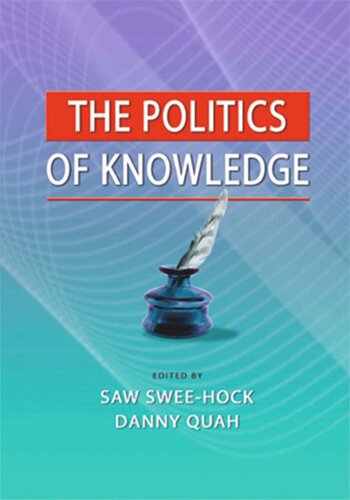

Most ebook files are in PDF format, so you can easily read them using various software such as Foxit Reader or directly on the Google Chrome browser.
Some ebook files are released by publishers in other formats such as .awz, .mobi, .epub, .fb2, etc. You may need to install specific software to read these formats on mobile/PC, such as Calibre.
Please read the tutorial at this link: https://ebookbell.com/faq
We offer FREE conversion to the popular formats you request; however, this may take some time. Therefore, right after payment, please email us, and we will try to provide the service as quickly as possible.
For some exceptional file formats or broken links (if any), please refrain from opening any disputes. Instead, email us first, and we will try to assist within a maximum of 6 hours.
EbookBell Team

4.1
100 reviewsThe publication of this book, comprising chapters written by distinguished scholars, is a timely recognition that these days we are bombarded by suggestions that knowledge is power, that we are operating in a knowledge economy, and that the greatest driver for financial growth and national development is the knowledge industry. There are more sources of knowledge available to a wider range of the world’s population than ever before. The Internet has made the dissemination of knowledge possible in ways not contemplated fifty years ago. National boundaries are crossed with consummate ease. Knowledge is not like other assets. It can be accessed rapidly and used by thousands, often millions, of people. This makes knowledge as an asset that generated much of the wealth in the early development of most nations. And different countries and regions need different strategies to support and promote the growth of their knowledge economies. These call for nationally and regionally-based approaches, and they entail new dynamics and challenges in wealth creation, legal regulation, national and social organization and the protection of environmental and natural resources.